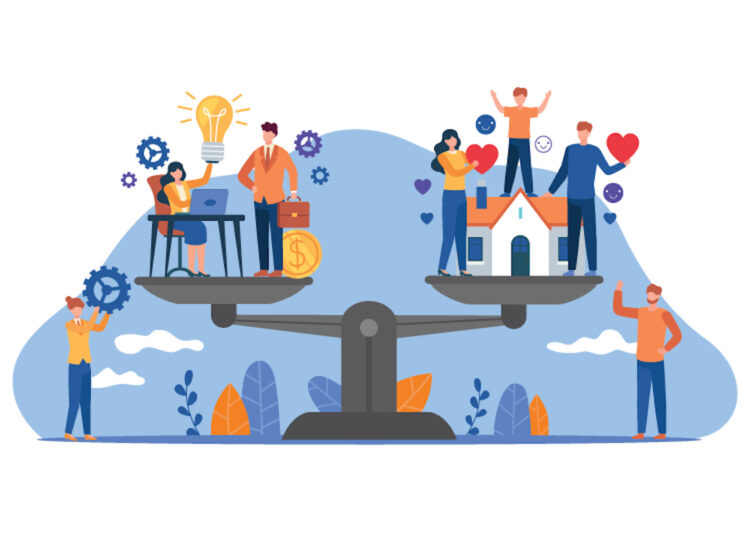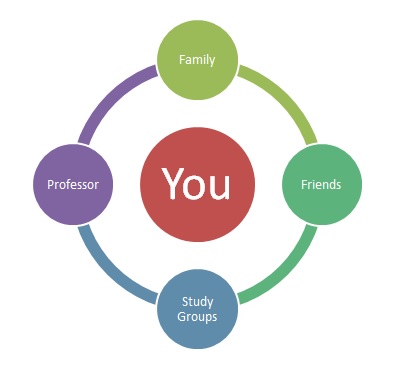
Work-life balance is a term that refers to the harmony between professional responsibilities and personal well-being. In today's fast-paced world, achieving a balance between work and personal life has become increasingly challenging. Maintaining this equilibrium is crucial for overall health and happiness. By managing work-life balance effectively, individuals can lead healthier and more fulfilling lives.
The Impact of Imbalance
Effects of work-life imbalance on physical health
When individuals are unable to strike a balance between work and personal life, it can take a toll on their physical health. Long hours at work, constant stress, and lack of self-care lead to health issues like fatigue, insomnia, high blood pressure, and even heart disease. Neglecting physical health due to work-related demands can have serious consequences in the long run.

Effects of work-life imbalance on mental health
Work-life imbalance not only affects physical health but also has a significant impact on mental well-being. Constant pressure to excel at work, feeling overwhelmed, and neglecting personal interests can lead to anxiety, depression, and burnout. Without taking time to recharge and focus on self-care, mental health issues can worsen over time.
Effects of work-life imbalance on relationships
Another area where work-life imbalance can have negative consequences is in relationships. Strained relationships with family and friends, lack of quality time spent with loved ones, and emotional distance due to work stress can lead to feelings of isolation and loneliness. Nurturing relationships requires time and effort, which can be challenging when work takes precedence.
Tips for Achieving Work-Life Balance
Setting boundaries between work and personal life
Establishing clear boundaries between work and personal life is essential for maintaining balance. This includes setting specific work hours, avoiding answering work-related calls and emails outside of those hours, and creating designated spaces for work and relaxation at home.
Prioritizing self-care activities
Making time for self-care activities such as exercise, meditation, hobbies, and relaxation is crucial for overall well-being. Prioritizing self-care helps individuals recharge, de-stress, and maintain a healthy work-life balance.
Utilizing time management techniques
Effective time management is key to balancing work and personal life. Prioritizing tasks, setting realistic goals, delegating when necessary, and avoiding procrastination can help individuals make the most of their time and prevent feelings of overwhelm.
Seeking support from friends, family, and colleagues
Building a support network of friends, family, and colleagues can provide valuable assistance in maintaining work-life balance. Seeking help when needed, sharing concerns, and receiving emotional support can make it easier to navigate the challenges of balancing work and personal life.

Benefits of Work-Life Balance
Improved physical health
Achieving work-life balance leads to improved physical health as individuals prioritize self-care, rest, and relaxation. Taking care of one's physical health through exercise, healthy eating habits, and adequate sleep contributes to overall well-being.
Enhanced mental well-being
Maintaining a healthy work-life balance also promotes mental well-being. By managing stress, prioritizing self-care, and engaging in activities that bring joy and fulfillment, individuals can protect their mental health and prevent burnout.
Stronger relationships
Balancing work and personal life allows individuals to dedicate time to nurturing relationships with family and friends. Spending quality time with loved ones, maintaining open communication, and showing appreciation strengthens bonds and promotes emotional well-being.
Increased productivity and job satisfaction
When individuals achieve work-life balance, they often experience increased productivity and job satisfaction. By taking time for self-care, managing stress effectively, and maintaining boundaries, employees can perform better at work and feel more fulfilled in their roles.
Strategies for Maintaining Work-Life Balance
Regular exercise and healthy eating habits
Incorporating regular exercise and healthy eating habits into daily routines is essential for maintaining work-life balance. Physical activity and nutrition play a significant role in overall well-being and energy levels.

Practicing mindfulness and stress management techniques
Engaging in mindfulness practices and stress management techniques can help individuals cope with work-related stress and maintain a sense of balance. Techniques such as meditation, deep breathing exercises, and yoga can promote relaxation and mental clarity.
Engaging in hobbies and leisure activities
Taking time to engage in hobbies and leisure activities outside of work is crucial for maintaining work-life balance. Hobbies provide a creative outlet, reduce stress, and offer opportunities for enjoyment and personal growth.
Creating a support network
Building a support network of friends, family, and colleagues can provide emotional support and assistance in times of need. Having a strong support system can help individuals navigate challenges and maintain a healthy work-life balance.

Case Studies of Successful Work-Life Balance
Personal stories of individuals who have achieved work-life balance
Sarah, a busy executive, struggled to balance her demanding job with personal time. Through setting boundaries, prioritizing self-care, and seeking support, she was able to achieve a healthy work-life balance.
Mark, a father of two, felt overwhelmed juggling work responsibilities and family commitments. By practicing time management techniques, engaging in hobbies, and spending quality time with his family, he found a balance that worked for him.
Strategies they implemented to maintain balance
Both Sarah and Mark implemented strategies such as setting boundaries, prioritizing self-care, and utilizing time management techniques to maintain work-life balance. By making conscious choices and seeking support, they were able to achieve harmony between work and personal life.
Benefits they have experienced in various aspects of their lives
As a result of achieving work-life balance, Sarah and Mark experienced improved physical health, enhanced mental well-being, stronger relationships, and increased job satisfaction. By prioritizing balance, they found fulfillment and happiness in both their professional and personal lives.
Conclusion
Work-life balance is essential for overall well-being and happiness. By prioritizing self-care, setting boundaries, and nurturing relationships, individuals can lead healthier and more fulfilling lives. It is important to recognize the impact of work-life imbalance on physical and mental health, as well as relationships, and take steps to maintain a healthy balance. By implementing strategies for maintaining work-life balance and learning from successful case studies, individuals can achieve harmony between work and personal life for a healthier and happier lifestyle. Remember, your well-being is a priority, and taking care of yourself is essential for a fulfilling life.
FAQs
Q: What is work-life balance?
A: Work-life balance refers to the harmony between professional responsibilities and personal well-being.
Q: How does work-life imbalance affect physical health?
A: Work-life imbalance can lead to health issues like fatigue, insomnia, high blood pressure, and heart disease due to neglecting physical health.
Q: What are the effects of work-life imbalance on mental health?
A: Work-life imbalance can result in anxiety, depression, and burnout as individuals feel overwhelmed and neglect personal interests.
Q: How does work-life imbalance impact relationships?
A: Work-life imbalance can strain relationships with family and friends, leading to feelings of isolation and loneliness.
Q: What are some tips for achieving work-life balance?
A: Setting boundaries, prioritizing self-care, utilizing time management techniques, and seeking support are key tips for achieving work-life balance.
Q: What are the benefits of work-life balance?
A: Improved physical health, enhanced mental well-being, stronger relationships, and increased productivity and job satisfaction are benefits of work-life balance.
Q: How can individuals maintain work-life balance effectively?
A: By incorporating regular exercise and healthy eating habits, practicing mindfulness and stress management techniques, engaging in hobbies, and building a support network, individuals can maintain work-life balance effectively.


0 Comments